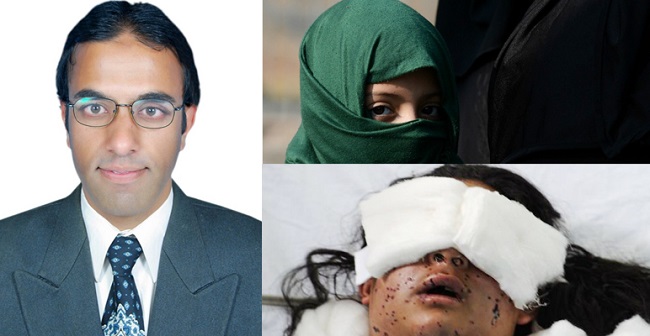Few months before an upswing has been observed over Kashmir, between Pakistan and India. Owing to the unwanting situation lots of people have migrated to other safer places, in addition to because of terrible situation over the line of control and in Kashmir the wellbeing of communities over there has been hampered. The Kashmir issue is one of the leading issues for both the countries Pakistan and India, which need to be resolved. For the resolution of Kashmir issue international leadership needs to find the ways and strategies to resolve this hanging issue, which has been the bone of contention between two countries since 1947. The cruelties of Indian army in occupied Kashmir for couple of months have reached over high pedestal, where the basic human rights are being violated, where the women are being raped, where the schools and colleges are being shut down. The international community can, no doubt play very vital role to lessen the sufferings of Kashmiris.
The year 2016 is the year of unrest in Kashmir, because Indian army has played havoc over there, and it is also known as the ‘Burhan aftermath’ refers to a series of violent protests in the Muslim-majority Kashmir valley in the Indian-administered state of Jammu and Kashmir. It started with the killing of Burhan Wani; a 22-year-old separatist by Indian security forces on 8th July 2016. After his killing, calming-of-relation in Kashmir was fractured and tension grows between India and Pakistan that spans over the period of three and half months.
Wani-killing led to a protest eruption across the valley, curfew has been imposed in the valley, mobile and internet services have been suspended. Indian forces and paramilitary forces used pellet guns, tear gas shells, rubber bullets, as well as assault rifles, resulting in the hundred of deaths and thousands of injured in the valley, especially kids, women and aged-elders in the riot.
With Wani’s killing, the situation in Kashmir entered a period of ‘amplified instability,’ the churning in Kashmir entered into 107 days on Saturday, 22 October left over 91 people dead and injured over 12,000 civilians in the forces firing and over 7,000 people arrested in the last three months.
The state government has launched a massive crackdown against agitating separatists to end the spate of protests and shutdowns that have kept valley on the boil. Whereas, the separatist groups have extended the strike up to the end of the October but announced relaxation in the evenings and nights.
Anxious to quell anti-India protests in Kashmir, Indian forces are carrying out their most severe crackdown in more than two decades against civilian protesters, India has said the separatist rebels — and civilians who help them — are undermining the country’s territorial integrity and forcing authorities to keep the India-controlled portion of Kashmir under tight control.
On other hand, the masses are thinking about an alternate strategy of recording the protests other than strikes. Asem Mohiuddin, a journalist based in Srinagar, wrote on social media that “70- years back the longest shutdown in the history of Palestine achieved nothing for them and it amply clears Hartal (strike) are the failed model of resistance politics and still we follow it with no roadmap ahead.” But the Hurriyat leader, said in a statement recently, that calling or observing shutdown after each innocent killing although does not meet the demands “but there is no other option left for us” said the Geelani. “Many voices were heard about finding alternatives to strike calls, but so far no concrete or practical idea has come to fore from any quarter,” he added.
Mir Zeeshan, a Srinagar’ native believes that the ongoing “struggle” from last three months is going on similar lines as the previous two uprisings of 2008 and 2010, and at last Kashmir sleep again and will rise again when something untoward happens.”
In Kashmir, a shutdown has been an only predominant form of political protest, they should come up with alternative modes of protests as prolonged strikes set in fatigue among the people,” said Nissar Ahmad, a resident of Srinagar. “There is no doubt that these prolonged strikes are the most viable option to mobilize public opinion, but they are also detrimental to the public that causes self-inflicting loss,” said another native of the Srinagar.
Residents say prolonged shutdown ensure into a fatigue among people, which is ultimately harmful to the very idea for which people have been struggling for the last three months.
No one sees the Kashmir dispute having a solution in the future. Everything has been tried: war, repression, elections, and inducements. The only question at present is how to prevent a bad situation from spiraling out of control. It is now time for the international community to go the extra mile to lighten up the unrest in Kashmir and to ease the tensions between India and Pakistan over it and to settle down the fears of the two neighboring nuclear powers heading down a dangerous path to further conflict,
The writer is a peace-activist and affiliated with Peace Mission www.missionthepeace.org Email: chairman@missionthepeace.org
